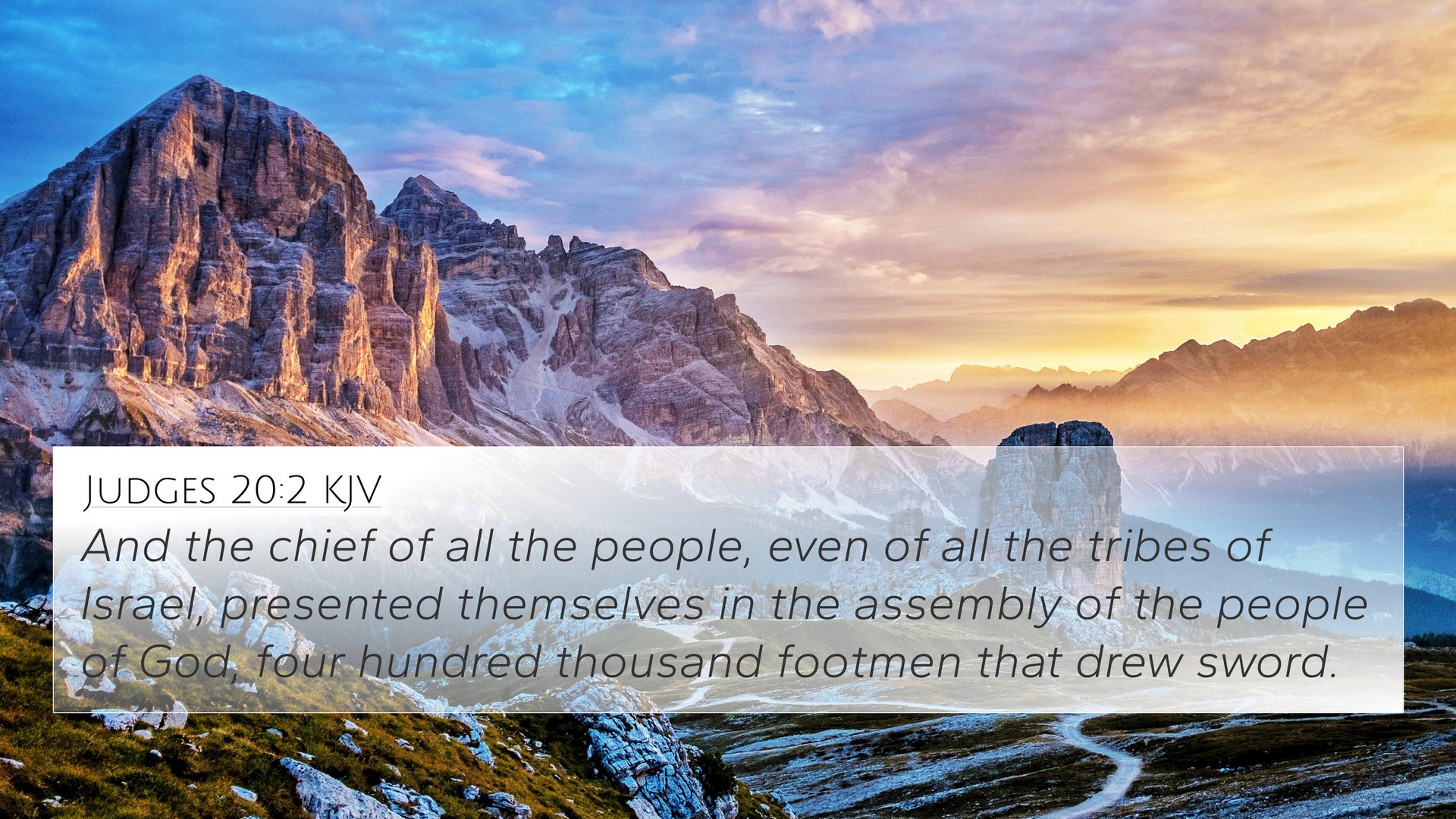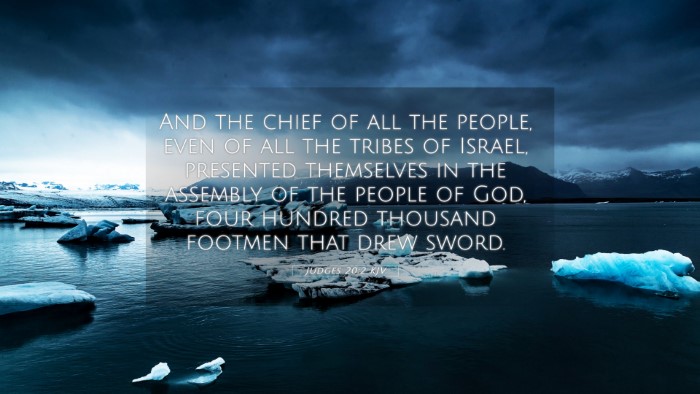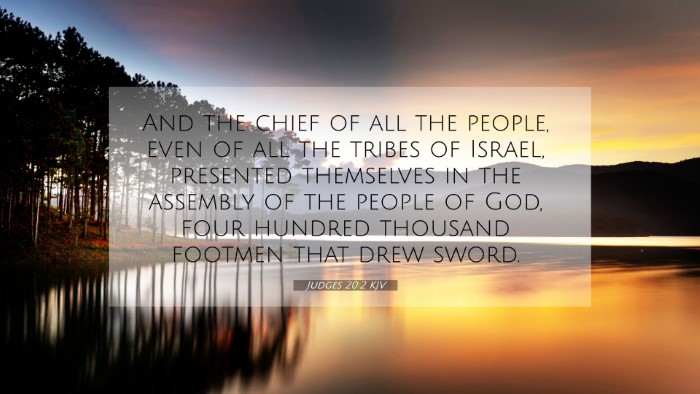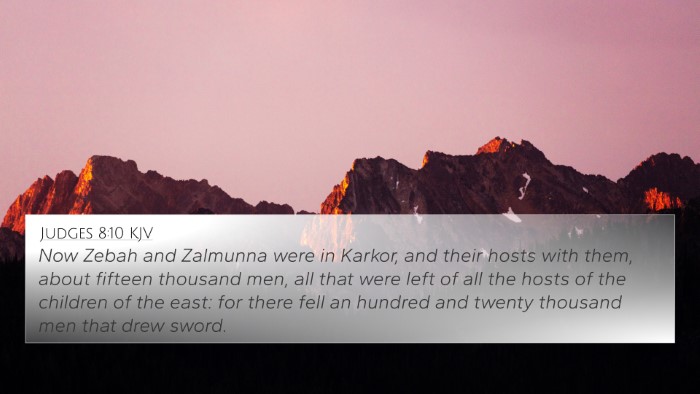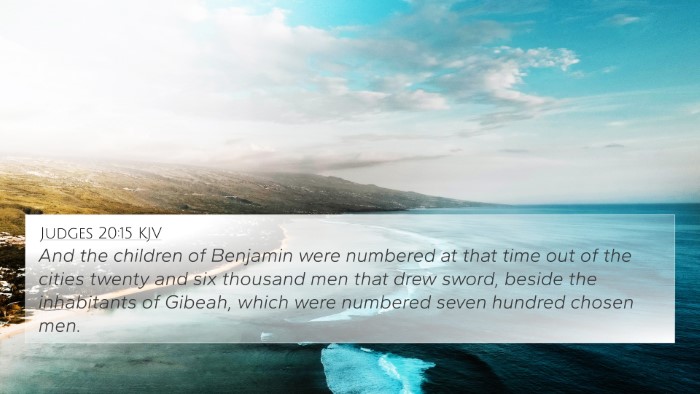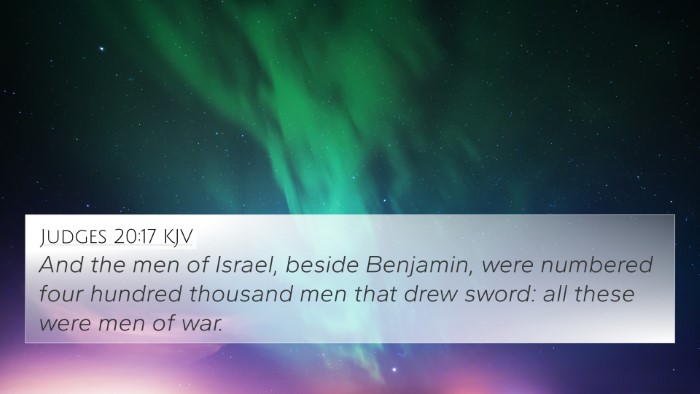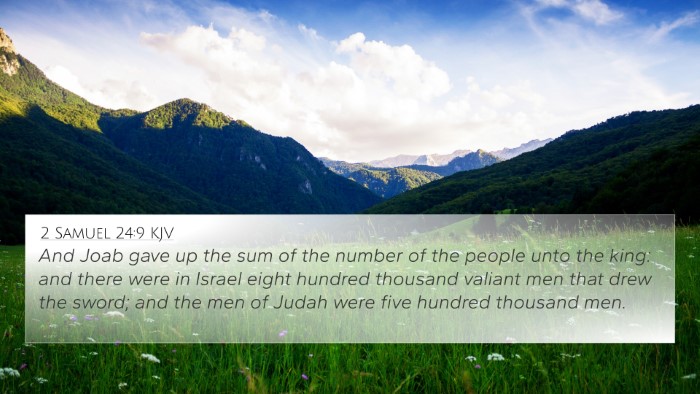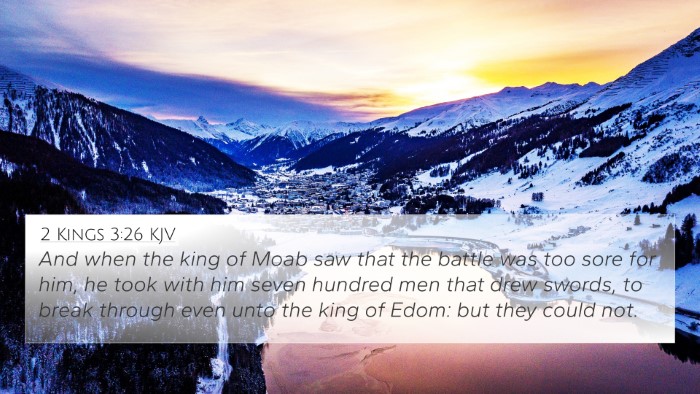Understanding Judges 20:2
Judges 20:2 presents a significant moment in the history of Israel, where the tribes gather to address a grave injustice that has occurred. Here, the verse states:
“And the chief of all the people, even of all the tribes of Israel, presented themselves in the assembly of the people of God, four hundred thousand footmen that drew sword.” (Judges 20:2)
This gathering signifies a serious response to moral and social decay, illustrating the communal resolution to seek justice.
Commentary Insights
By synthesizing the perspectives from various public domain commentaries, we can gain a richer understanding of this verse.
Matthew Henry’s Commentary
Henry highlights the gravity of the situation, noting that the collective action from the tribes of Israel showcases their unity against sin and injustice. He emphasizes:
- Solemn Assembly: The assembly of troops signifies the seriousness of their intent.
- Unity of the Tribes: All tribes of Israel are engaged, highlighting a collective responsibility in addressing immorality.
- Preparation for Battle: Their readiness to fight indicates the importance of upholding justice in their community.
Albert Barnes’ Commentary
Barnes focuses on the military aspect of the gathering. He notes that:
- Preparedness: The mention of ‘four hundred thousand footmen that drew sword’ shows a formidable force ready to confront evil.
- Historical Context: This event is set against the backdrop of a troubling moral state within Israel, which needed addressing.
- God’s Governance: The action taken by the tribes reflects an understanding that divine justice must be enacted through communal effort.
Adam Clarke’s Commentary
Clarke provides insight into the implications of the verse regarding Israel’s societal structure:
- Significance of Numbers: The large number shows the weight of the collective response to injustice.
- Gathering of Leaders: The gathering indicates a call for leadership, suggesting the responsibility of the leaders to guide the people morally.
- Call for Justice: This was not merely about military might but a call for righteousness among the people of God.
Cross-References for Judges 20:2
To further understand the significance of this verse, here are some Bible cross-references that highlight similar themes of justice, communal responsibility, and the importance of righteous action:
- Deuteronomy 13:12-15: Addresses the need for communal action against sin.
- Psalms 119:53: Expresses indignation for those who forsake God's law.
- Proverbs 24:11-12: Encourages rescuing those being led to death.
- Ezekiel 33:1-9: The responsibilities of watchmen call for community involvement in confronting sin.
- James 5:16: Discusses confessing sins to one another and praying for each other, linking to communal accountability.
- Galatians 6:1: Encourages restoring those who are caught in sin with a spirit of gentleness.
- 1 Corinthians 5:6-7: Instructs the church to remove sin from among them.
Thematic Connections and Analysis
This verse, and its context, allow for comparative study and thematic connections with various parts of scripture:
- Links to the overarching theme of communal responsibility found in the Torah.
- Illustrates the consequences of inaction against evil as seen in the history of Israel.
- Parallels drawn with New Testament teachings on maintaining holiness within the community.
Conclusion
Judges 20:2 serves as a critical reminder of the collective responsibility to confront sin and uphold justice. By examining this verse through various commentaries and cross-referencing, we gain better insight into the expectations of God's people as well as the direct applications for contemporary believers.
Further Study
For those interested in conducting a deeper study on this verse or exploring connections with other scriptures, consider utilizing tools for Bible cross-referencing, consulting a Bible concordance, or using a cross-reference Bible study guide to discover how these themes are woven throughout the biblical narrative.
